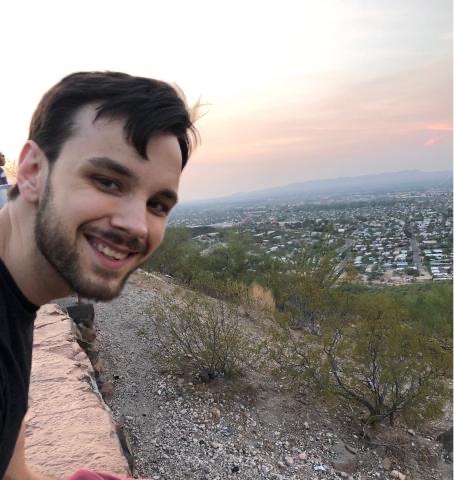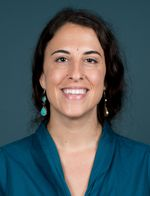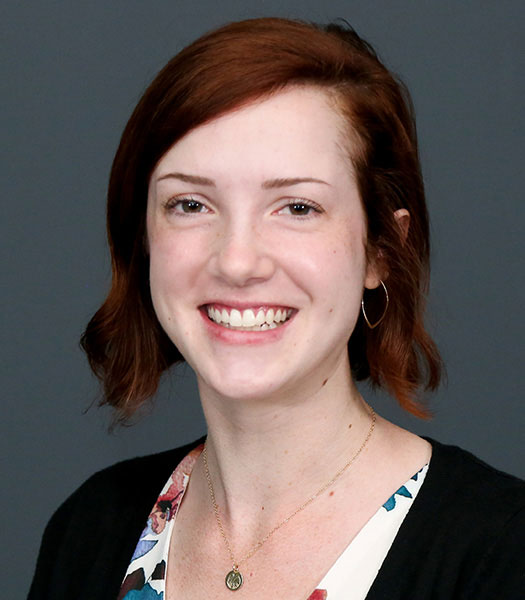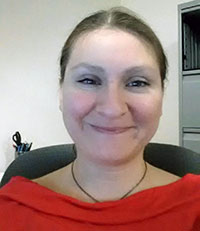Sociology Graduate Spotlight
Angelica Lopez

Graduate Date: May 2020
Graduate Committee: Dr. Monserud (chair), Dr. Anderson, Dr. Narendorf
Thesis Description
For my thesis, I estimated a series of logistic regression models to examine the interplay between generation status, acculturation and socioeconomic status on the perceived need for mental health services among Asians and Latinos in the United States. The findings indicate that among Asian Americans, the 1.5, 2.5 and third-generation are significantly more likely to have previously perceived the need to use mental health services. Notably, the level of English proficiency nullified the relationship between generation status and perceived need for mental health services among Latinos.
Where are you now?
After graduation, I started working as a data analyst and community researcher for the Sankofa Research Institute here in Houston. The Sankofa Research Institute uses Community Based Participatory Research to engage with local Houston communities and help them carry out research to address problems in their community. My role is to help design and carry out data collection, analyze quantitative and qualitative findings and present the data in a consumable way for community members.
In Fall 2021, I resumed my academic journey and started my Ph.D. in Sociology at Arizona State University. Asides from my work with Sankofa, I am a research and teaching assistant at ASU. My research assistantship focuses on the interplay between racial/ethnic identity and sleep.
How has the program helped you?
The UH sociology program provided me with extensive quantitative training. By the end of the program, I was well versed with statistical software, quantitative methods and my writing had improved. These assets have been indispensable in my job as a data analyst and in my research at ASU. Lastly, I would like to add that the UH sociology program has professors that are really supportive of students and their academic goals.
Dylan Simburger

Graduate Date: May 2020
Graduate Committee: Dr. Kathryn Anderson (chair), Dr. Anthony G. Dworkin, Dr. Aimee Chin
Thesis Description
My thesis looked at how the upward, inter-generational socioeconomic mobility of Asian Americans is moderated by the experiences in their communities. I used Rice University’s Kinder Houston Area Survey to perform a series of OLS regressions that indicated that, while second-generation Asian Americans were expected to make more than their first-generation counterparts, this effect was moderated by their perception of racial and ethnic relations in the Houston area. This effect was reinforced by the education of the respondents, such that more education seemed to facilitate a better perception of racial and ethnic relations. These finding line up with current theory on Asian Americans and assimilation theory while also pointing towards new directions to measure the “successful” integration of immigrant groups.
Where are you now?
I am now a Ph.D. student in the Sociology Department at the University of Arizona. The program puts a heavy focus on methods training and empirical research. I am using my time in the program to continue my research in immigrant populations and communities and am increasingly trying to bring concepts of culture and identity back into studies of immigrant assimilation and incorporation. I primarily use quantitative methods to investigate this and am also beginning to incorporate computational techniques into my research to help me explore new data sources.
How has the program helped you?
The UH Sociology program provides an excellent foundation that equips one with the knowledge and tools to either continue their academic careers or enter more applied sectors. Students are given the appropriate quantitative and qualitative training to do worthwhile research as well as a space to think and develop their ideas with extensive faculty support. The program also improved many of my other professional skills: including writing, professional interaction, time management, and project development. Overall, this program is supportive, knowledgeable, and worthwhile.
Fanni Farago

Graduation Date: December 2018
Graduate Committee: Dr. Maria Monserud (Chair), Dr. A. Gary Dworkin, Dr. Sheara Williams-Jennings
Thesis Title: Shaping Student Outcomes: The Relevance of Perceived Discrimination for 2nd Generation Minority Adolescents
Thesis Description
For my master’s thesis, I quantitatively investigated the relationship between different sources of perceived discrimination and academic outcomes for second generation immigrant adolescents belonging to various racial/ethnic groups. My goal was to better understand how perceived societal, institutional and peer discrimination impacted immigrant youth’s academic well-being. Unexpectedly, greater perceptions of peer discrimination predicted improved academic performance and higher academic aspirations. As expected, stronger perceived institutional discrimination predicted lower academic performance. I used Garcia Coll and colleagues’ (1996) Integrative Model for the Study of Developmental Competencies in Minority Children to contextualize findings from the perspective of adaptive cultural strategies children of immigrants and their families develop to cope with discrimination.
Where are you now?
I am a sociology doctoral student and Graduate Research Assistant (GRA) at George Mason University. Since starting the program in fall 2019, I have enjoyed working for two different research centers, the Center for Social Science Research (CSSR) and the Institute for Immigration Research (IIR). As a GRA, I have had the opportunity to develop my applied and academic research skills through various projects that required quantitative or qualitative data collection, analysis, or reporting. For example, I worked on the Medication-Assisted Treatment (MAT) Utilization Survey of Problem-Solving Courts, a national survey examining the facilitators and barriers of MAT usage among problem-solving courts. This study contributes to broader conversations about how problem-solving courts can help mitigate the opioid crisis and better serve court participants addicted to opioids or other substances.
How has the program helped you?
The UH Sociology program was the beginning of my professionalization as a sociologist. In general, it provided me with a strong foundation of disciplinary knowledge and practices (i.e., research, writing, and teaching), all of which facilitated my successful transition into a PhD program. More specifically, I gained substantive research experience through my thesis and summer research position; these experiences prepared me well for my subsequent work as a GRA. Additionally, the rigorous thesis writing experience gave me the confidence and know-how to work on various co-authored publications in my first year of the PhD program. Finally, working as a Teaching Assistant (TA) for two years was an immersive professionalization experience that helped me sharpen my communication and teaching skills. Such skills come in handy given that I often work on interdisciplinary research teams and collaborate with various non-research professionals, folks who all want clear and simple communication and have zero patience for obscure, sociological jargon, similar to my former undergraduate students.
Lindsay Oncken

Graduate Date: August 2018
Graduate Committee: Dr. Kwan (chair), Dr. Anderson, and Dr. Hernandez
Thesis Description
For my thesis, I conducted in-depth interviews with local Meals on Wheels recipients to better understand how low-income seniors’ social interaction impacts their ability to develop resilience. I found that, in order to combat limitations to autonomy experienced in old age, many seniors engage in social strategies that allow them to promote a more agentive sense of self to others. I argued that being able to engage in these strategies is a key mechanism by which social interaction promotes resilience among the elderly.
Where are you now?
I recently started as an Associate Research Analyst with the Texas Association of School Boards (TASB), an Austin-based nonprofit providing a wide range of services to school districts throughout the state of Texas. In my role, I assist with research projects, conduct data analysis, and write reports to help the various service providers within TASB better understand and support school districts.
How has the program helped you?
The UH Sociology program equipped me with several concrete skills that were hugely helpful during my job search. Having a firm knowledge of statistical analysis and research processes allowed me to offer a unique and valuable skillset to my employers. In addition, having solid teaching and writing experience showed employers that I could make complex ideas digestible to non-experts—something that is especially important in an applied research setting. Overall, the graduate program gave me the skills, experience, and confidence to find a job that is intellectually challenging and engaging.
Trenton Haltom

Graduation Date: May 2015
Track: Thesis
Graduate Committee: Amanda Baumle (Chair), Samantha Kwan, Guillermo de los Reyes
Where to find him:
Website: tmhaltom.com
Twitter: @TMHaltom
What was your thesis topic?
I interviewed male baton twirlers around the country about their experiences with privilege and disadvantage being men in a feminized sport. Interviews also consisted of discussions about the embodiment of gender in this feminized space, how the twirlers experienced and negotiated stigma, and also how they defined masculinity given their involvement in a sport “for girls.” Currently, I have a book chapter under review about how these men embody gender, and am working on two other pieces – one regarding their social identity management techniques as a result of stigma, and the other about how they are tokenized (i.e. experiences with privilege and disadvantage). Sometime in the future, my goal is to publish a book on the topic!
Where are you now?
I’m a second year doctoral student at the University of Nebraska-Lincoln. For my dissertation, I’m interested in how gender and sexuality map onto sociology of the body. In particular, I use eye-tracking technology and interviews to get at how men look at other men. Do they objectify each other? Are they sexualizing each other? Do they feel like they don’t measure up to a certain bodily standard? In an experimental setting, heterosexual and non-heterosexual men will view images of other men during which time their eye movements will be recorded. After the eye-tracking portion, they will be interviewed about how they thought they looked at the images, their thoughts (or lack thereof) on other men’s bodies, whether they feel like they “measure up” to idealized standards of men’s bodies, and how any of these topics affects their perceptions of masculinity. At the very least, I anticipate this work contributing to discussions of homophobia, multiple masculinities, and body image issues among men.
What first attracted you to our program?
The faculty mentorship opportunities, funding opportunities, and of course the city itself was really exciting.
Skills Taken From the Program:
- Qualitative and statistical training which is really unique for a terminal Master’s program. Among similar programs, it stands out because of the coursework that is offered.
- The proseminar was also great because it allowed those who were new to sociology to acclimate, those who were on the internship track to think about their trajectory, and those of us who were familiar with sociology to find our place within the discipline.
- Even though it’s a terminal Master’s program, they treat you like junior colleagues. The UH sociology department is a professional environment that allows for the growth of young scholars and applied sociologists. In that way, the faculty at UH are mentors not only while students are enrolled, but even after graduation.
Major Areas of Interest:
- Men & Masculinities
- Sexualities
- Sociology of the Body
- Work & Occupations
- Sociology of Sport
Angela Leal

Angela Leal earned her M.A. in sociology in spring 2013. Her M.A. thesis, “Leaving So Soon? Why Hispanic Mothers Start Breastfeeding Only to Abandon the Practice in the First Six Months” examines the social circumstances shaping Hispanic women’s infant feeding decisions. Her thesis committee members include Samantha Kwan (Sociology), Tatcho Mindiola (Sociology), Jennifer Augustine (Sociology), and Elizabeth Gregory (Women’s, Gender, and Sexuality Studies).
National health statistics show that, although Hispanic women initiate breastfeeding at rates higher than the national average, there is a steeper drop in breastfeeding rates during the first six months of a child’s life for this population (compared to other racial/ethnic groups). Angela’s analysis of interviews with eighteen Hispanic mothers found that emotional and practical support work to override the breastfeeding obstacles mothers face. Mothers with emotional support from at least one key individual in their life, backed by practical support in taking care of household or other responsibilities, allowed women to meet their breastfeeding goals. Furthermore, Angela’s research found that dual cultural adaptation plays a complex role in breastfeeding. While adapting to a more modern American lifestyle, including two working parents, may decrease breastfeeding duration, maintaining a traditionally gendered family structure may decrease it as well. Angela’s research thus points to the importance of implementing policies that increase partner support to facilitate breastfeeding in this population.
Angela worked as a conflict of interest analyst at the M.D. Anderson Cancer Center. In her position, Angela used the analytical, critical thinking, research, and writing skills that she developed in the M.A. Sociology program to analyze faculty members’ contracts with outside companies to ensure compliance with federal, University of Texas System, and M.D. Anderson policies. She prepared memos for the Conflict of Interest Committee to review and when an outside relationship reached a certain financial threshold, Angela assisted in the preparation of documentation for further review. She has just recently taken another position as a Compliance analyst with Norton Rose Fulbright.
